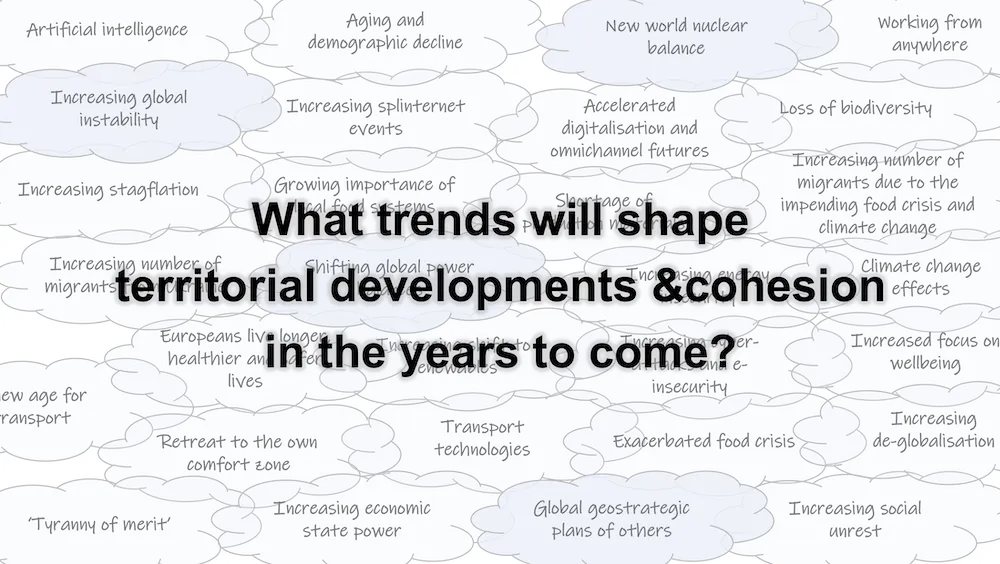Political trends shaping territorial cohesion
March 2023

This is the last in a series of blog posts addressing trends shaping territorial cohesion. This blog post addresses a collection of more political trends. The collection is based on various studies addressing mega-trends which we have conducted during 2022, e.g. for the European Parliament (S'ouvre dans une nouvelle fenêtre), the European Committee of the Regions (S'ouvre dans une nouvelle fenêtre) or ESPON (S'ouvre dans une nouvelle fenêtre). Bringing together the various pieces of trend analysis provides a rich picture about possible developments which may shape territorial development and cohesion in Europe.
Trends considered to have the strongest impacts on territorial development and cohesion include exogenous technological (S'ouvre dans une nouvelle fenêtre) (e.g. digital society, post-carbon and circular economy), societal (S'ouvre dans une nouvelle fenêtre) (e.g. migration, aging, fluid social institutions and shifts in values), environment (S'ouvre dans une nouvelle fenêtre)trends (e.g. adapting/mitigating climate change and managing scarce resources), and economic (S'ouvre dans une nouvelle fenêtre) (e.g. slowbalisation, peak of everything, working from anywhere). Also political trends play an important role, both political developments in Europe, as well as those in other parts of the world which affect development prospects in Europe.
The combined picture which emerges from this suggests that future trends are likely to exacerbate spatial and societal fragmentation, interdependencies and policy mismatches. In many regards the trends point to a risk of increasing concentration on urban areas with growing territorial imbalances and inequalities, which may translate into social fragmentation and increasing discontent. This also risks to increase perceptions of uncertainty and vulnerability in a world of disruptive changes leading to ‘pervasive uncertainties’.
Political trends
At geopolitical level, there are several antipodal developments. On the one hand, global tensions increase with a tendency towards block building and protectionism. On the other hand, multilateral agreements are negotiated in fields from climate change to free trade, although there are difficulties to keep all governments committed to their implementation (e.g. Paris Climate Agreement). At European level, there are developments focusing on Europe’s position in the world such as external security threats and energy security. There are also internal developments such as efforts to preserve the European economic and social model in times of crises or increasing divergence of government standards and qualities, as well as the rise of populism and nationalism.
To read this post you'll need to become a member. Members help us fund our work to ensure we can stick around long-term.
See our plans (S'ouvre dans une nouvelle fenêtre)
Déjà membre ? Connexion (S'ouvre dans une nouvelle fenêtre)


